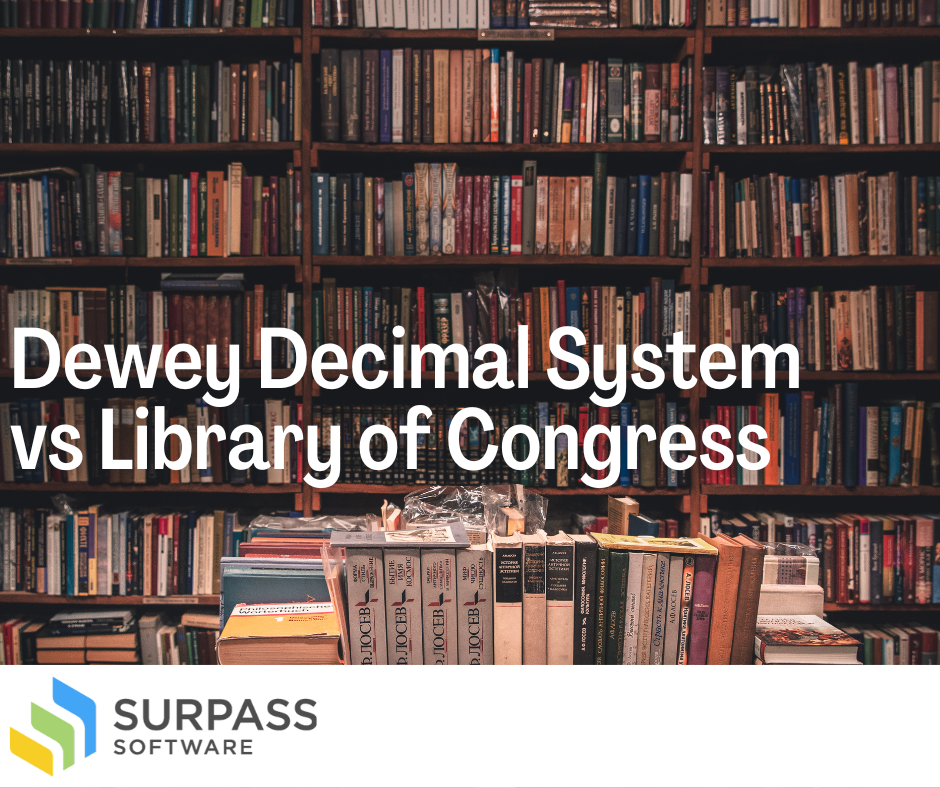If you approach any experienced librarian to ask which library classification system is better between the Dewey Decimal System (DDS) and the Library of Congress Classification system (LCC), they will have much to say about their disparities and similarities. The Dewey Decimal System (DDS) and the Library of Congress Classification system (LCC) are arguably the two most commonly used classification systems in libraries.
Libraries are an essential part of any educational system. To help students learn new information, find relevant resources, and improve their knowledge, libraries employ these classification systems to organize books based on subject and topic. There’s so much to learn about the Dewey Decimal System and the Library of Congress System in the rest of this article.
What are the Dewey Decimal System and Library of Congress classification systems, and what do they classify books into?
The Dewey Decimal System and Library of Congress Classification are unique systems that classify books into different categories. Although created in different centuries, both systems were created to make it easier for librarians and book buyers to organize and browse through books and to help keep track of books regarding their location, usage, or age.
The Dewey Decimal System was first published in 1876 by Melvil Dewey, an American librarian, and self-declared reformer. Melvil had developed the system three years before this and applied it in the Amherst College library where he was working. This classification system is based on dividing all the library books into ten different classes. The ten classes are:
- 000–099 Computer science, information, and general works
- 100–199 Philosophy and psychology
- 200–299 Religion
- 300–399 Social sciences
- 400–499 Language
- 500–599 Pure Science
- 600–699 Technology
- 700–799 Arts and recreation
- 800–899 Literature
- 900–999 History and Geography
Each class can be divided into more sections and subclasses, each in tens. To find a book, you just had to locate the general classification and find your way further down. Here’s an example of the Dewey Decimal Classification system:
- 500 Natural sciences and mathematics
- 510 Mathematics
- 516 Geometry
- 516.3 Analytic geometries
- 516.37 Metric differential geometries
- 516.375 Finsler geometry
The Library of Congress Classification (LCC) system, as the name implies, was created in 1900 by James C.M. Hanson, who was Head of the Catalog Division, and Charles Martel, who was Chief Classifier. At the time, the Library of Congress had just moved to a new building, and the old system of classification was insufficient to organize the millions of books that the library contained. A new classification system was created specifically for the Library of Congress by evaluating and modifying three existing systems of classification – The Dewey Decimal Classification (DDC), German Halle Schema, and Cutter’s Expansive Classification.
Currently, books are divided into 21 classes, with each class using a letter from A-Z. Some letters (I, O, W, X, and Y) have not been assigned to any field yet. Here is the most current classification:
- A General Works
- B Philosophy. Psychology. Religion
- C Auxiliary Sciences of History
- D World History and History of Europe, Asia, Africa, Australia, New Zealand, etc.
- E History of the Americas
- F History of the Americas
- G Geography. Anthropology. Recreation
- H Social Sciences
- J Political Science
- K Law
- L Education
- M Music and Books on Music
- N Fine Arts
- P Language and Literature
- Q Science
- R Medicine
- S Agriculture
- T Technology
- U Military Science
- V Naval Science
- Z Bibliography. Library Science. Information Resources (General)
The classifications can further be divided into subclasses denoted by alphabets from A-Z. These subclasses can also have divisions denoted by numbers from 1-9999. For context.
- P – Language and Literature
- PK – Indo-Iranian languages and literatures
- PK1421-1429.5 – Apabhramsa
Today, both systems are being adopted in many libraries around the world.
How do the two systems compare regarding comprehensiveness and organization principles?
The Library of Congress Classification (LCC) system was developed based on the number of books available in the Library of Congress at the time. This system provides a wider range of organizing books. Still, certain libraries do not have any material that falls into any classes in the Library of Congress system. Hence, the Library of Congress system might not be useful when the number of books to be organized is limited. Also, the Library of Congress Classification can be difficult to learn since every library will need to create unique numbers for each book, and these numbers are usually a mixture of integers and alphabets.
The Dewey Decimal System, however, is more comprehensive, and books are organized based on discipline rather than availability. Library users can quickly locate books as each division contains ten sections.
Which system is more commonly used in libraries today, and why is that so?
The Dewey Decimal System is the most commonly used library classification system worldwide. In the United States, the Library of Congress Classification is most common in academic libraries. However, public and school libraries prefer to adopt the Dewey Decimal System. Much larger libraries may even use the electronic version of both the LCC and DDS to organize their catalog.
What are some pros and cons of using each system for library cataloging purposes?
The table below compares the pros and cons of using each system for library cataloging purposes.
Users
Dewey Decimal System (DDS): DDS has been serving many users since even before it was published.
Library of Congress (LOC): The number of libraries and individuals using LCC is lesser.
Universality
DDS: DDS indexes books using numbers which makes it easy for non-English speakers to adopt this system.
LOC: Using alphabets to index LOC limits the number of people who can understand the indexing and the number of libraries where it can be used.
Number of Divisions
DDS: DDS has ten divisions for each section which means that some subjects will have to be squeezed to fit into a list of ten.
LOC: LOC uses 21 divisions for the class and subclasses. Hence, more subjects can be covered in these divisions without squeezing.
Classes
DDS: There have been concerns about how disciplines are classified under DDS. For example, Psychology is separated from Pure Science, and Language is separated from Literature.
LOC: LOC provides a more comprehensive and acceptable way of grouping books than DDS.
Specialization
DDS: DDS is best for organizing books that are not specialized on a particular topic.
LOC: LOC is your best option for organizing a large number of books that are centered around a specific topic.
Ultimately, which system should you choose for your library’s cataloging needs, and why?
The classification system that you choose for your library cataloging needs will depend primarily on the kind of library that you operate. The Dewey Decimal System will be better suited for small libraries because books become easier to find, and the Dewey number won’t be too long. If you have a library with many books on several subjects, the Dewey system is an ideal option. However, if your catalog includes many books on a particular topic, it would be best if you adopted the Library of Congress system. This is why most academic libraries use this system, as mentioned earlier.
How Does Surpass Cloud Deal with DDS and LCC?
Surpass Cloud is extremely flexible and supports both the Dewey Decimal System and Library of Congress Classification. You can choose between the two systems in your call number formatting. Or, you can override the call number formatting fields and use any classification system that you like. Surpass also allows you to chose which fields to use as the call number when copy cataloging.
Surpass allows you to easily report on materials in your catalog by classification.
No matter which classification system you rely on, Surpass Cloud has you covered.
About Surpass
Surpass Cloud is the easy-to-use, cloud-based library management system for libraries of all types and sizes. Whether you’re a school, church, museum, business, or any other organization with resources to lend, Surpass is likely a good fit for you. We pride ourselves on being affordable and flexible, with an expert support team ready to help you at a moment’s notice.
Schedule a free demo to see Surpass in action.




